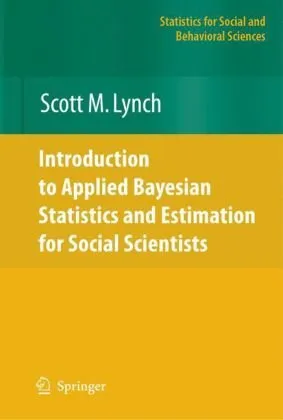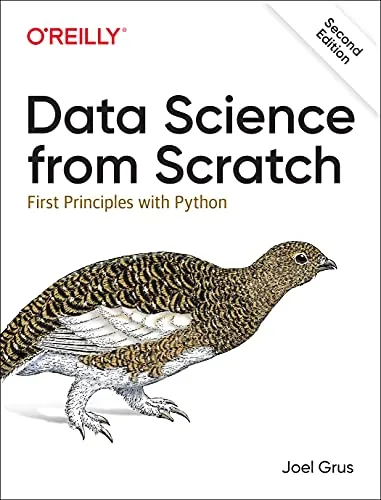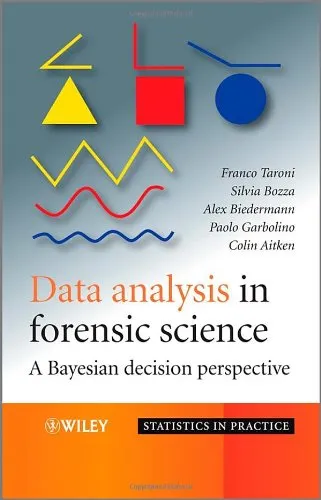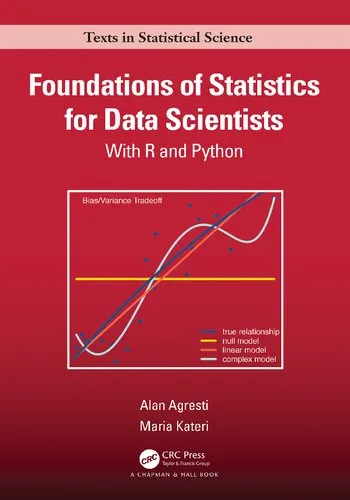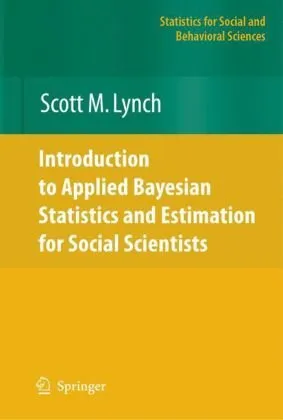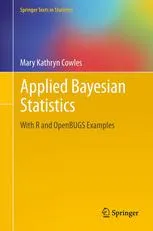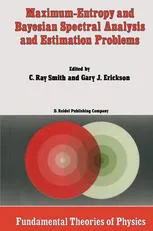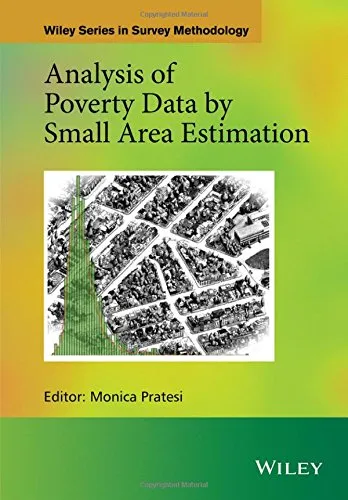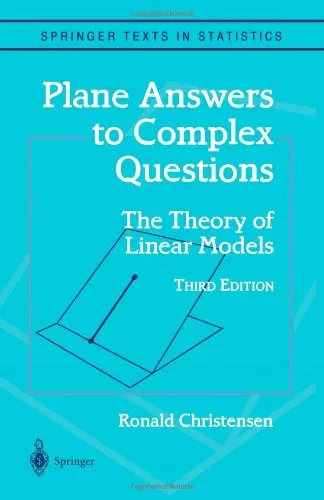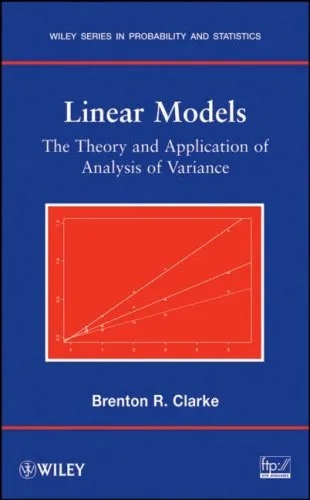Introduction to Applied Bayesian Statistics and Estimation for Social Scientists (Statistics for Social and Behavioral Sciences)
4.5
Reviews from our users

You Can Ask your questions from this book's AI after Login
Each download or ask from book AI costs 2 points. To earn more free points, please visit the Points Guide Page and complete some valuable actions.Related Refrences:
Introduction to Applied Bayesian Statistics and Estimation for Social Scientists
Bayesian statistics, once considered niche and complex, has emerged as a cornerstone of modern data analysis in the social sciences. The book "Introduction to Applied Bayesian Statistics and Estimation for Social Scientists" offers an accessible yet comprehensive pathway for students, researchers, and professionals in social sciences to unlock the potential of Bayesian methods. Designed with real-world scenarios in mind, this text aims to bridge the gap between statistical theory and practical application, equipping readers to incorporate Bayesian approaches into their own work.
Written by Scott M. Lynch, the material demystifies Bayesian concepts, enabling users with varying levels of statistical background to appreciate its relevance and power. It is not merely a technical handbook but an engaging guide tailored specifically for those in the social and behavioral sciences seeking actionable insights in their research and data analysis.
Detailed Summary
This book addresses the growing need among social scientists to incorporate Bayesian statistical techniques into their research. Bayesian statistics differ fundamentally from traditional, frequentist methods by expressing uncertainty directly using probabilities. Through this lens, the book delves into a range of topics, from the foundational principles of Bayesian inference to complex modeling approaches. With clear explanations and step-by-step examples, it facilitates an easier understanding of seemingly complicated concepts.
The book’s narrative starts with an introduction to probability theory and the fundamental components of Bayesian analysis, including prior distributions, likelihoods, and posterior distributions. It then progresses to advanced methods like Markov Chain Monte Carlo (MCMC) and hierarchical modeling. Each chapter builds upon the prior concepts and incorporates practical exercises, real-world social science datasets, and applications modeled in software environments like R, enabling readers to practice what they learn.
Additionally, the text emphasizes intuition over mathematical rigor. While the techniques are backed by proper statistical theory, the focus remains on their applicability and interpretation. With this approach, readers gain confidence not only in performing Bayesian analyses but in comprehending their implications for their specific research questions.
Key Takeaways
- An accessible introduction to Bayesian thinking tailored for social and behavioral scientists.
- Step-by-step guidance on implementing Bayesian models using practical examples and real-world datasets.
- Emphasis on interpreting results, making the content particularly actionable for applied researchers.
- Hands-on integration of software tools like R for data analysis and visualization of Bayesian models.
- A comparison of Bayesian versus frequentist approaches, helping readers understand when and why to use Bayesian methods.
Famous Quotes from the Book
"Bayesian analysis is not about answers—it’s about asking the right questions."
"Incorporating prior knowledge doesn’t eliminate uncertainty; it opens the door to a more nuanced understanding."
"Bayesian methods are not limited to statisticians. In fact, their power resides in their ability to address practical problems faced by researchers in any field."
Why This Book Matters
Bayesian methods have become increasingly indispensable in modern research, especially where uncertainty plays a significant role in decision-making. For social scientists, this book offers an invaluable resource for fostering a deeper understanding of their data and improving the quality of their conclusions. In an era when data deluge challenges traditional analysis strategies, the Bayesian approach provides clarity and adaptability.
What sets this book apart is its dedication to social and behavioral sciences. While other Bayesian guides often lean toward theoretical or overly technical discussions, this work bridges practicality and theory, speaking directly to researchers and practitioners in sociology, psychology, political science, and related fields. By illustrating Bayesian principles within the context of familiar social science problems, it enhances its utility and relevance for the target audience.
Whether you’re a student striving to master these concepts, a seasoned researcher seeking to elevate your analytical toolkit, or an instructor looking for a user-friendly textbook for your class, "Introduction to Applied Bayesian Statistics and Estimation for Social Scientists" is an essential resource. Its focus on accessibility ensures that Bayesian statistics can empower researchers to address questions of significance with confidence and precision, thus making it a must-read in contemporary statistics literature.
Free Direct Download
You Can Download this book after Login
Accessing books through legal platforms and public libraries not only supports the rights of authors and publishers but also contributes to the sustainability of reading culture. Before downloading, please take a moment to consider these options.
Find this book on other platforms:
WorldCat helps you find books in libraries worldwide.
See ratings, reviews, and discussions on Goodreads.
Find and buy rare or used books on AbeBooks.
1348
بازدید4.5
امتیاز0
نظر98%
رضایتReviews:
4.5
Based on 0 users review
Questions & Answers
Ask questions about this book or help others by answering
No questions yet. Be the first to ask!
